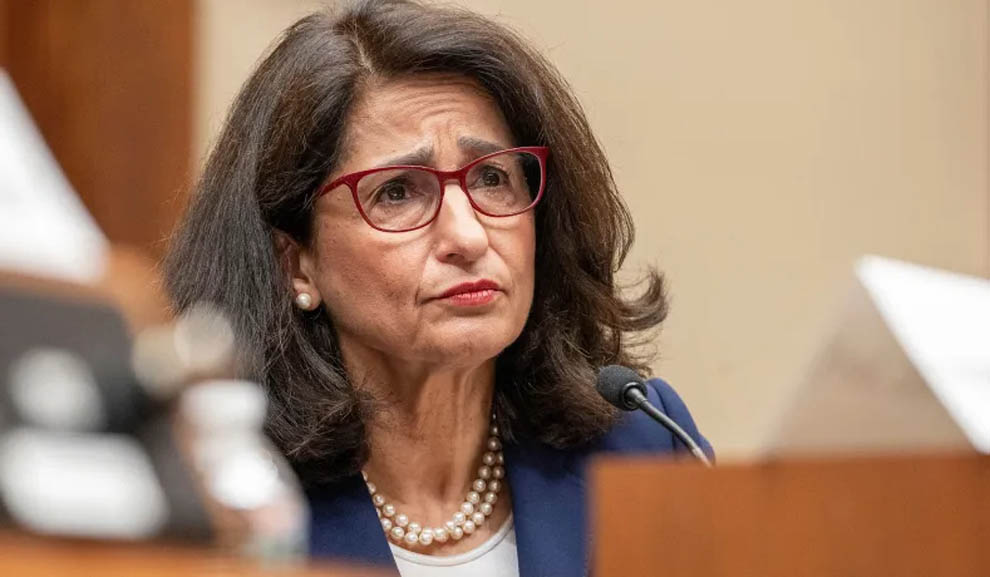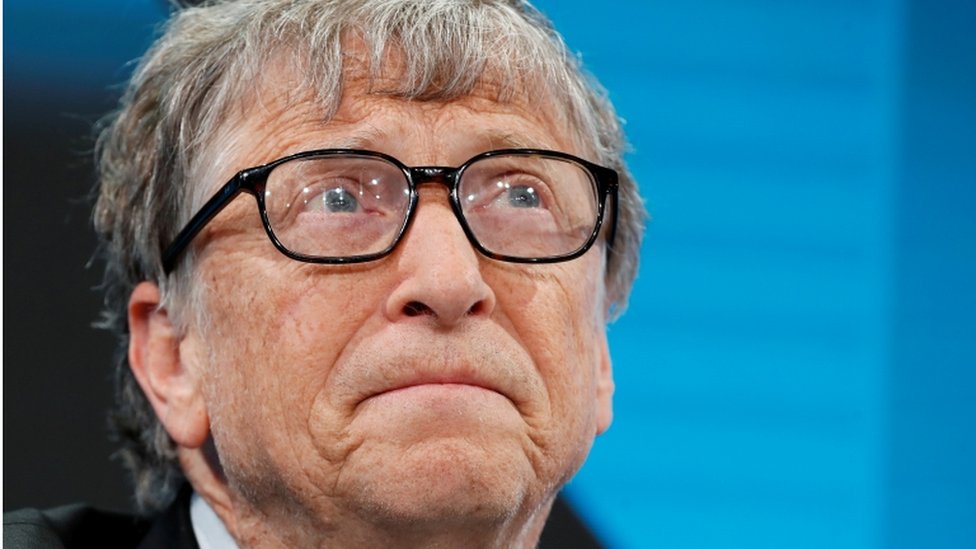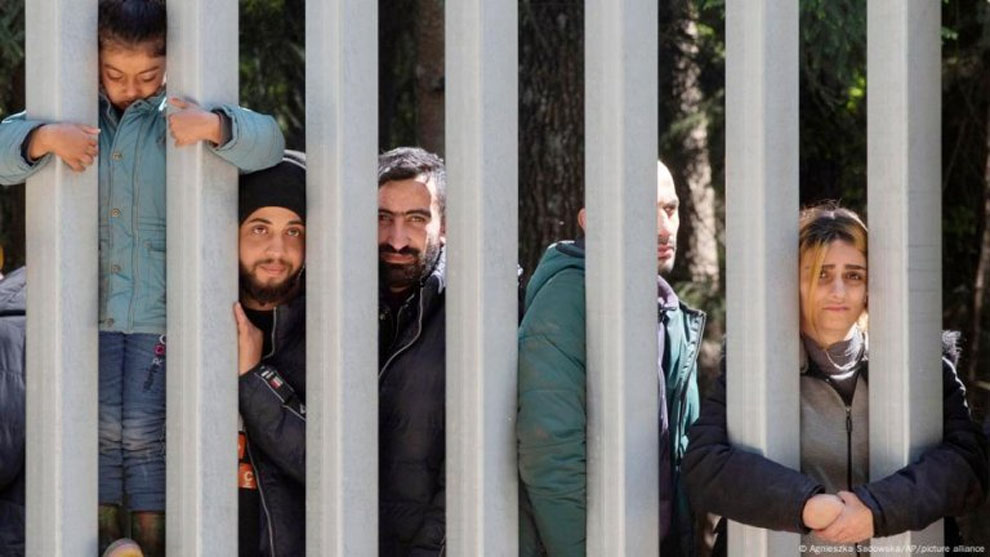International
Columbia University president resigns after Gaza protests turmoil

Columbia University president resigns after Gaza protests turmoil
Columbia University President Minouche Shafik has resigned from her position amid a free speech debate over campus protests of the war in Gaza.
Ms Shafik’s resignation comes only a year after she took the position at the private Ivy League university in New York City, and just a few weeks before the autumn semester is due to begin.
Ms Shafik is now the third president of an Ivy League university to resign over her handling of Gaza war protests.
In April, Ms Shafik authorised New York Police Department officers to swarm the campus, a controversial decision that led to the arrests of about 100 students who were occupying a university building.
The episode marked the first time that mass arrests had been made on Columbia’s campus since Vietnam War protests more than five decades ago.
The move inflamed other protests at dozens of colleges across the United States and Canada.
In an email to students and faculty on Wednesday, Ms Shafik wrote that she has overseen a “period of turmoil where it has been difficult to overcome divergent views across our community”.
“This period has taken a considerable toll on my family, as it has for others in our community.”
Katrina Armstrong, chief executive officer of the Columbia University Irving Medical Center, will serve as the interim president.
“Over the summer, I have been able to reflect and have decided that my moving on at this point would best enable Columbia to traverse the challenges ahead,” Ms Shafik wrote in her letter.
“I have tried to navigate a path that upholds academic principles and treats everyone with fairness and compassion,” she continued.
“It has been distressing – for the community, for me as president and on a personal level – to find myself, colleagues, and students the subject of threats and abuse.”
READ ALSO:
- Constitution not Nigeria’s problem, Tanko Yakasai tackles the Patriots
- Why I attacked Tinubu – Bauchi gov
- Man kills 8-year-old son over sewing thread in Lagos
Students’ anger over how Israel is fighting its war against Hamas has raised fraught questions for university leaders, who are already struggling with combustive campus debates around what is happening in the Middle East.
US college campuses have been a flashpoint for Gaza war protests since Hamas attacked Israel on 7 October, and Israel’s subsequent incursion into the Gaza Strip.
The leaders of Harvard University, University of Pennsylvania (UPenn) and the Massachusetts Institute of Technology all testified before the House Committee on Education and the Workforce.
The presidents of Harvard and UPenn ultimately resigned amid backlash over their handling of campus protests and congressional testimony, including their refusal to say that calling for the deaths of Jews could violate university policy.
In April, Ms Shafik defended her institution’s efforts to tackle antisemitism to Congress, saying that there had been a rise in such hatred on campus and the college was working to protect students.
Ms Shafik is a highly-respected Egyptian-born economist who formerly worked for the World Bank, the International Monetary Fund and the Bank of England.
She also previously served as president of the London School of Economics.
Ms Shafik, who received a damehood in 2015, was previously considered to be on the shortlist for the Bank of England governor, the BBC reported in 2019.
Her letter adds that she has been asked by the UK Foreign Secretary to lead a “review of the government’s approach to international development and how to improve capability”.
READ ALSO:
- Protesters made away Ganduje’s corruption allegation documents from court–Kano Gov
- Immigration arrests woman who destroyed husband’s passport, taken to Abuja (VIDEO)
- Tribunal sacks PDP candidate, declares LP winner of House of Reps election
The decision, she wrote, “enables me to return to the House of Lords and to reengage with the important legislative agenda put forth by the new UK government”.
Her resignation comes after three Columbia University deans also resigned last week, after text messages showed the group used “antisemitic tropes”, according to a statement by Ms Shafik, while discussing Jewish students.
The text exchanges were originally published by the Republican-led House Committee on Education and the Workforce in early July.
Congresswoman Virginia Foxx, the chairwoman of the congressional committee, praised the decision by the three administrators to resign.
“About time. Actions have consequences,” she said in a statement last Thursday, adding that the decision should have been made “months ago”.
“Instead, the University continues to send mixed signals,” she continued, adding that the administration is allowing a dean who has not resigned to “slide under the radar with no real consequences”.
Universities around the US are preparing for the academic year to begin in the next several weeks, as the conflict in Gaza continues.
On Tuesday, a judge in California ruled that UCLA – which saw violent protests break out on campus in May – must prevent protesters from blocking Jewish students from campus facilities.
Judge Mark Scarsi ruled that protesters had “established checkpoints and required passers-by to wear a specific wristband to cross them”, and blocking “people who supported the existence of the state of Israel”.
“Jewish students were excluded from portions of the UCLA campus because they refused to denounce their faith,” Judge Scarsi wrote in the order. “This fact is so unimaginable and so abhorrent to our constitutional guarantee of religious freedom that it bears repeating.”
The university has blamed outside agitators for the checkpoints and said it objected to the ruling.
Hamas-led gunmen killed about 1,200 people in an attack on Israel on 7 October, taking 251 others back to Gaza as hostages.
That attack triggered a massive Israeli military offensive against Gaza and the current war.
At least 39,897 Palestinians have been killed in the Israeli campaign, according to Gaza’s Hamas-run health ministry.
Columbia University president resigns after Gaza protests turmoil
BBC
International
AI will replace doctors, teachers, others in 10 years – Bill Gates

AI will replace doctors, teachers, others in 10 years – Bill Gates
Bill Gates, a co-founder of Microsoft, has claimed that improvements in artificial intelligence (AI) over the next decade may render humans superfluous for the majority of work.
In a recent interview with comedian Jimmy Fallon on NBC’s The Tonight Show in February, the billionaire philanthropist discussed how AI may take over many facets of life and business.
Gates remarked that expertise is currently “rare”, emphasising the continuous reliance on human specialists in industries such as medicine and education.
For example, we continue to rely on highly trained individuals, such as “a great doctor” or “a great teacher”, whose knowledge cannot be simply replaced by AI.
However, “with AI, over the next decade, that will become free, commonplace — great medical advice, great tutoring,” Gates said.
READ ALSO:
- Senate seeks FG’s immediate intervention to slash data prices
- Reno Omokri: Nigeria gives more opportunities than US, Britain, Canada
- Driver remanded for causing Osun varsity students’ death
In other words, Gates believes that the world is entering a new era of “free intelligence”, as he described in a recent interview with Harvard University professor and happiness specialist Arthur Brooks.
According to Gates, this transition will result in rapid breakthroughs in AI-powered technology, making them more accessible and affecting almost every part of our lives.
These breakthroughs will vary from more effective treatments and diagnoses to widely available AI instructors and virtual assistants.
“It’s very profound and even a little bit scary — because it’s happening very quickly, and there is no upper bound,” Gates told Brooks.
The discussion of how humans will fit into an AI-powered future continues.
Some analysts suggest that artificial intelligence will improve human productivity rather than completely replacing labour, hence driving economic growth and creating new jobs.
However, Microsoft AI CEO Mustafa Suleyman cautions that technological improvements in the coming years will disrupt the nature of most occupations across nearly all industries, potentially exerting a “hugely destabilising” influence on the workforce.
AI will replace doctors, teachers, others in 10 years – Bill Gates
International
Poland suspends migrants’ right to apply for asylum

Poland suspends migrants’ right to apply for asylum
Poland has temporarily suspended the right of migrants arriving in Poland via its border with Belarus to apply for asylum.
Prime Minister Donald Tusk announced it would be happening after the controversial bill, which will allow Polish authorities to suspend this right for up to 60 days at a time, was signed into law by President Andrzej Duda.
Tusk had said it would be adopted “without a moment’s delay” while Duda said the changes were needed to strengthen security on the country’s borders.
But the law has been criticized by rights groups including Human Rights Watch, which said the EU should take legal action against Poland if it was implemented.
The group urged the country’s parliament last month to reject the bill, saying it “flies in the face of Poland’s international and EU obligations” and could “effectively completely seal off the Poland-Belarus border, where Polish authorities already engage in unlawful and abusive pushbacks”.
READ ALSO:
- Trump slaps 25% tariffs on car imports to US
- Reps pass bill to strip Vice President, governors, deputies of immunity
- Businessman collapses in court during trial over $578,000 cash seizure
The government said previously the suspension would only be applied temporarily to people who pose a threat to state security, for example large groups of aggressive migrants trying to storm the border.
Exemptions will be made for unaccompanied minors, pregnant women, the elderly or unwell, anyone exposed to “real risk of serious harm” by being returned and citizens of countries accused of conducting the instrumentalization of migration – like Belarus
Tusk has dismissed criticism from human rights groups.
“Nobody is talking about violating human rights, the right to asylum, we are talking about not granting applications to people who illegally cross the border in groups organised by Lukashenko,” he said in October.
Since 2021, Poland, Lithuania, Latvia and Finland have seen a huge increase in the number of people crossing into their countries illegally from Belarus and Russia.
Polish authorities have sent thousands of troops and border guards to police its border with Belarus and built a 5.5-metre-high steel fence along 186 km of the frontier where at times several thousand migrants have been left stranded.
Rights groups estimate more than one hundred people have died on the borders between Belarus and Poland, Lithuania and Latvia since 2021.
EU eastern flank countries and the European Commission have accused the Belarusian and Russian authorities of weaponising migration to create a new route into the EU to destabilize the bloc.
Poland suspends migrants’ right to apply for asylum
BBC
International
Trump slaps 25% tariffs on car imports to US

Trump slaps 25% tariffs on car imports to US
US President Donald Trump has slapped new 25% import duties on autos and car parts entering the US, threatening to escalate the global trade war.
Trump said the additional duties would go into effect on April 2, with levies on businesses importing autos beginning the next day. Charges for parts are scheduled to begin in May or later.
The president stated that the proposal would result in “tremendous growth” for the auto industry, saying that it would boost jobs and investment in the United States.
However, analysts believe the measure will result in a temporary stoppage of significant US vehicle production, higher costs, and strained relations with allies.
Last year, the US imported approximately eight million cars, accounting for approximately $240 billion (£186 billion) in trade and roughly half of total sales.
Mexico is the top foreign supplier of cars to the US, followed by South Korea, Japan, Canada, and Germany.
Trump’s latest move could disrupt global car trade and supply chains. Many US car companies have operations in Mexico and Canada under the terms of the long-standing free trade agreement.
READ ALSO:
- Reps pass bill to strip Vice President, governors, deputies of immunity
- Businessman collapses in court during trial over $578,000 cash seizure
- Fire guts Onitsha market, many shops, goods destroyed
However, the new taxes on parts from Canada and Mexico are exempt until US Customs and Border Patrol establish a method to assess the duties, according to the White House. Every day, billions of dollars in goods cross borders between neighbouring countries.
On Wednesday, General Motors’ stock fell almost 3%. The sell-off spread to other firms, including Ford, following the president’s speech that reaffirmed the tariffs.
When asked during a news conference if there was any chance he would change his mind, Trump responded no, later adding, “This is permanent.”
“If you build your car in the United States there is no tariff,” he said.
Japanese Prime Minister Shigeru Ishiba stated that his government would consider all measures in reaction to the taxes.
Japan, home to several major automakers, is the world’s second-largest vehicle exporter.
Japanese automakers’ shares, including Toyota, Nissan, and Honda, sank in early trading in Tokyo.
A tariff is a levy on imports levied by the government and paid by the company importing the goods.
Trump has welcomed the instrument, intending to use it to target a wide range of imported goods as part of a larger effort to defend American industries and increase production.
However, while the rules can protect domestic industries, they also increase costs for businesses that rely on imported parts, such as carmakers.
According to the Anderson Economic Group, 25% tariffs on parts from Mexico and Canada alone could increase the cost of a car by $4,000 to $10,000, depending on the type.
Trump slaps 25% tariffs on car imports to US
-

 metro2 days ago
metro2 days agoAttack on Mufty of Ilorin: Onikijipa Family Charges Stakeholders to Call Sheikh Habibullahi Al-Ilory to Order
-

 Health3 days ago
Health3 days agoNigerian doctor pioneers W’Africa first robotic prostate cancer surgery
-

 metro3 days ago
metro3 days agoFubara: Supreme Court reacts to photo of Justice Agim with Wike
-

 metro11 hours ago
metro11 hours agoRivers administrator Ibas fires Fubara’s political appointees
-

 metro3 days ago
metro3 days agoUNIOSUN mourns as 5 students die in auto crash
-

 metro11 hours ago
metro11 hours agoJUST-IN: Ex-Oyo gov Ajimobi’s first child Bisola dies At 42
-

 International2 days ago
International2 days agoCanada removes bonus ranking points for job offers in Express Entry system
-

 metro1 day ago
metro1 day agoHow ritualists, native doctor drugged, murdered underage sisters in PH – Police

